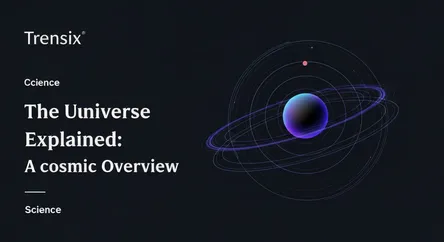Science
The Universe Explained: A Cosmic Overview
What is it?
The universe is the entirety of space and time, including all matter and energy. It encompasses everything from the smallest subatomic particles to the largest galactic superclusters. Scientists estimate the universe is approximately 13.8 billion years old, originating from an incredibly hot, dense state known as the Big Bang. This event initiated the expansion that continues today, causing galaxies to move away from each other. The study of the universe's origin, evolution, and ultimate fate is called cosmology. It is composed of visible matter (stars, planets), but is dominated by mysterious dark matter and dark energy.
Why is it trending?
The universe is a constant source of fascination, fueled by groundbreaking discoveries from observatories like the James Webb Space Telescope. These powerful instruments provide stunning, unprecedented images of distant galaxies and nebulae, challenging existing theories and sparking public imagination. Ongoing research into dark matter, dark energy, black holes, and the possibility of a multiverse keeps cosmology at the forefront of scientific news. The commercialization of space travel has also renewed popular interest in our place within the cosmos.
How does it affect people?
Understanding the universe profoundly impacts humanity's perspective, inspiring awe and philosophical questions about our origins and purpose. Scientific inquiry into the cosmos drives technological innovation, leading to advancements in computing, materials science, and navigation (like GPS). The study of cosmic phenomena helps us understand fundamental physical laws that govern our world. It fuels our collective imagination, influencing art, literature, and our enduring quest to discover if we are alone in this vast, mysterious expanse.
